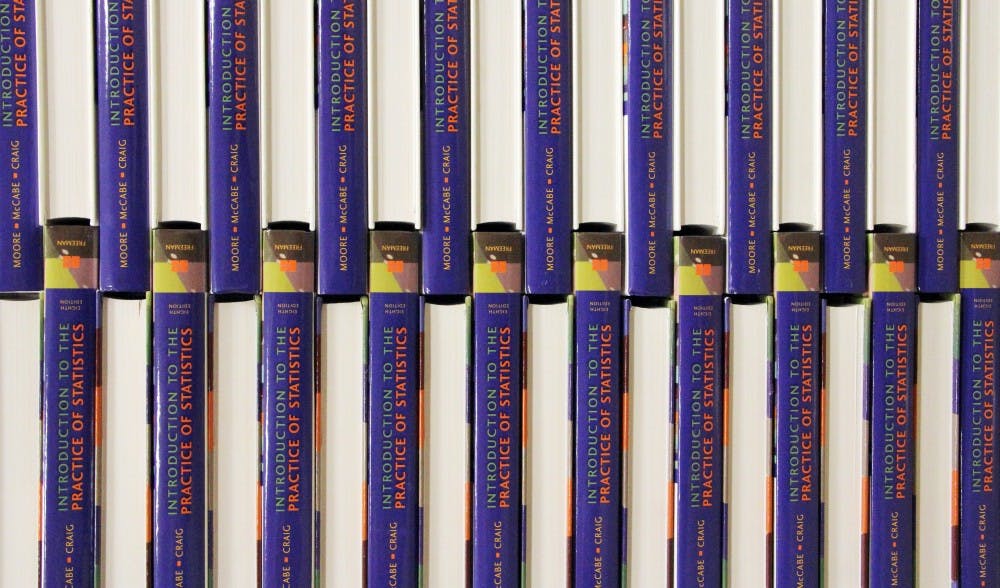In just over 30 years, textbook prices have increased by 812 percent according to the think tank, the American Enterprise Insititute. Penn’s Student Registration and Financial Services Office estimates that Penn students spend $1,220 on textbooks annually.
The rising cost of textbooks has been a particular strain on many Penn students, since many financial aid packages do not include the cost of class materials.
“I think that textbooks should be factored into financial aid consideration,” College sophomore Ian Masters said. “It is not a marginal cost, and students unable to afford them gives others an unfair advantage.”
At a Penn Democrats event on Jan. 28, New Jersey Rep. Bill Pascrell spoke about the responsibility colleges have to students, specifically mentioning escalating textbook prices.
“I am tired of looking at the sins of education,” he said. He pointed to the high prices of textbooks as one of these sins resulting from practices of textbook companies and universities.
The reality of paying for textbooks puts academic and financial strain on many students — even those who already receive financial aid. One College sophomore — who preferred to remain anonymous for financial privacy reasons — said she resorts to spacing out her textbook purchases throughout the year in order to stay within her monthly budget.
“I find it really hard to pay for textbooks,” she said.
Some students have found ways to reduce their textbook prices dramatically so that they are more manageable to afford.
“It stresses me out a little, but I usually find good prices online because I rent them from places like Chegg, and it’s so much cheaper,” College sophomore Danielle Petsis said.
Other students take it a step further, finding ways to never pay for textbooks at all.
“I didn’t buy a single textbook this year,” one College sophomore said. She preferred to remain anonymous because “it’s not exactly legal.”
While many students agree that the financial strain of purchasing textbooks should be included somewhere in financial aid packages, others understand that the implementation could be confusing.
“I guess that is hard to implement because some classes don’t need textbooks,” Petsis said. “But I think it would only make sense if it did.”



